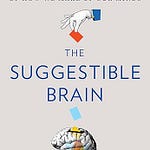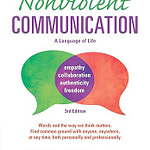Mary Poffenroth, PhD, is a scientist, professor, and fear expert who has spent her career researching how we can all live more courageously, every day. With anxiety rates tripling and depression rates quadrupling since 2019, Brave New You could not be timelier as it gives readers actionable steps to navigate the underlying cause of our current mental health crisis: fear. Not fight-or-flight, but the kind of pervasive, debilitating everyday fears triggered by problems, stresses, and challenging issues we all face in our day-to-day lives.
Along with the author’s personal stories about overcoming her fears, Brave New You combines the latest research in biology and psychology to help readers identify the hidden sources of struggle while teaching them to use neurohacks that will give them all the tools and strategies they need to live a fuller, happier life.
Here are some key lessons from the book:
Understanding Fear: Recognize that fear is a natural human emotion designed to protect us. By understanding its biological and psychological roots, we can better manage our responses.
The RAIN Method: Poffenroth introduces the RAIN technique to navigate fear:
Recognize: Acknowledge the fear.
Assign: Determine its origin.
Identify: Understand why it’s occurring.
Navigate: Develop strategies to move through it.
Neurohacks for Immediate Relief: The book offers quick techniques, or “neurohacks,” to alleviate fear and anxiety, such as sensory grounding exercises and specific breathing methods.
Embracing Imperfection: Let go of perfectionism. Accepting imperfections can reduce anxiety and open pathways to personal growth.
Building Resilience: Develop resilience by stepping out of your comfort zone and facing fears incrementally, which strengthens your ability to handle future challenges.
Defining Core Values: Clarify your core values to guide decision-making and align actions with what truly matters, reducing fear-based reactions.
Mindfulness Practice: Incorporate mindfulness to stay present, which can diminish the power of fear rooted in past experiences or future uncertainties.
Courage Challenges: Engage in “courage challenges”—deliberate acts that push your boundaries—to build confidence and diminish fear over time.
Understanding Attachment Styles: Explore your attachment style to comprehend how relationships influence your fears and behaviors, aiding in healthier interpersonal dynamics.
Self-Compassion: Practice self-compassion to treat yourself with kindness during fearful moments, fostering a supportive internal environment for growth.











